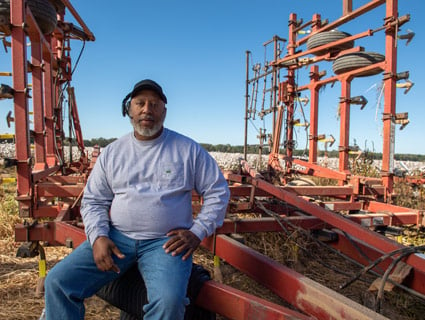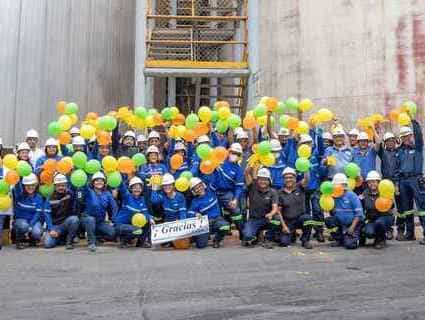Advancing Black equity: 3 colleagues turn understanding into action
Read Time: 4 minutes
February 08, 2024
Valencia Cooper wants to tackle a disquieting statistic.
In the U.S., Black people represent 14.2% of the population, yet own only 2.3% of the firms.
As a supplier diversity specialist at Cargill, Valencia is in the right job for the task. She helps underrepresented business owners get certified as part of our supplier diversity program. It’s a way to connect diverse entrepreneurs to financial freedom — inspired by how her heroes, like Harriet Tubman, connected people to personal freedom in the past.
“The business owners do the heavy lifting, but our small portion of charting a route to get owners certified helps create a new kind of financial freedom,” Valencia says. “Seeing that growth is gratifying.”
Her work with diverse suppliers extends to the farm, too.
In 2022, when Valencia joined Cargill, she jumped right into the volunteer team supporting the Black Farmer Equity Initiative, which helps address systemic racial inequity for Black farmers.
“I think of myself as an advisor who helps them get the answers they need,” Valencia says. “Most Black farmers I meet haven’t worked with big companies like Cargill, I can help show them potential pathways. I can be that person for them.”
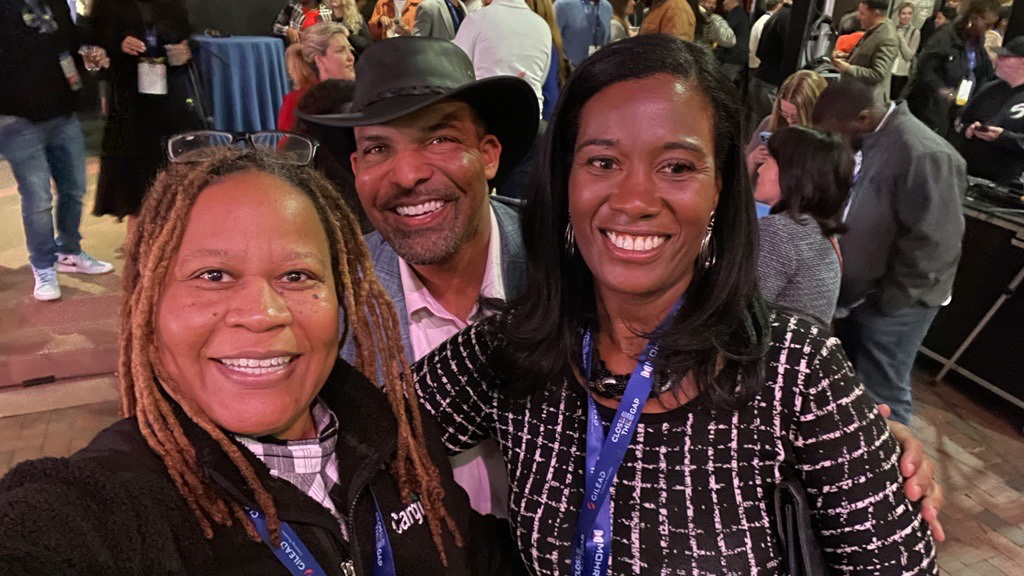 Valencia Cooper (left) with partners PJ Haynie and Kimberly Ratcliff, both of whom lead organizations that are a part of Cargill’s Black Farmer Equity Initiative.
With help from employees like Valencia, the Black Farmer Equity Initiative aims to improve the participation, productivity and profitability of Black farmers, ranchers and growers in the U.S.
Valencia Cooper (left) with partners PJ Haynie and Kimberly Ratcliff, both of whom lead organizations that are a part of Cargill’s Black Farmer Equity Initiative.
With help from employees like Valencia, the Black Farmer Equity Initiative aims to improve the participation, productivity and profitability of Black farmers, ranchers and growers in the U.S.
Through training with strategic partners, focused outreach and supply chain opportunity mapping, the program has increased the number of Black suppliers participating in mainstream supply chains and improved their access to markets.
Adds Valencia, “I want to be observant and make sure I’m understanding needs and getting to know people. Making sure we are future facing — showing where we need to go and how we get there.”
Cargill’s commitment to advancing Black equityAdvancing Black equity continues to be a focus at Cargill. We are addressing anti-Black racism in the United States and Brazil due to deep historical roots and persistent systemic issues. To address and dismantle injustices, our teams in Corporate Responsibility, Supplier Diversity, Government Relations and more work together to bring the breadth and depth of Cargill to bear. Learn more. |
From reluctant leader to inspiration in Ghana’s cocoa communities
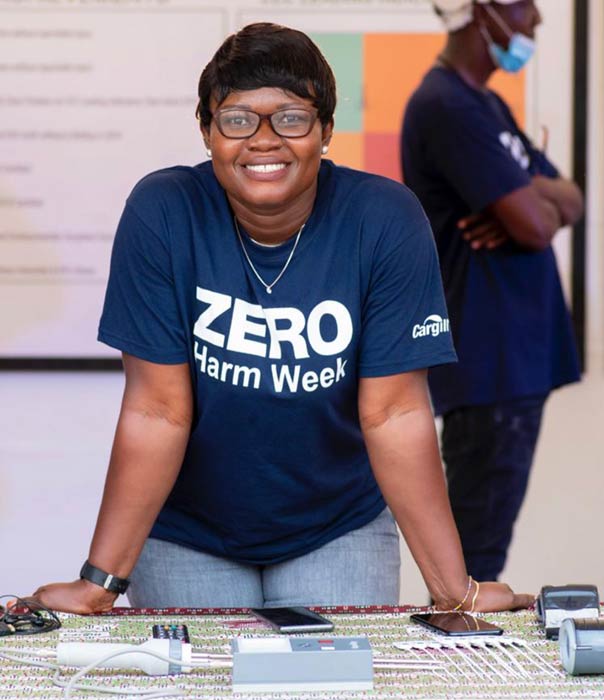 Charlotte Boadi was one of Cargill’s first cocoa sourcing leads in Ghana.
When Charlotte Boadi joined Cargill in 2016, she felt the pressure of being the only woman on her team.
Charlotte Boadi was one of Cargill’s first cocoa sourcing leads in Ghana.
When Charlotte Boadi joined Cargill in 2016, she felt the pressure of being the only woman on her team.
But those feelings started to fade when the Ghanaian cocoa sourcing lead began visiting the farming communities where she purchased cocoa beans for Cargill.
During one visit, a local woman brought her two daughters to show them how Charlotte operated a computer and worked for a global company.
“It was then that I realized I had an opportunity to show young, Black girls in surrounding communities what they were capable of,” Charlotte says. “I felt a responsibility and excitement.”
Through the Cargill Women’s Network, one of nine employee-led business resource groups, Charlotte met many women and children in the surrounding villages. Her commitment to encouraging young girls in farming communities to take their education seriously eventually earned her a new nickname: “Cargill Madam.”
It’s also inspired more women in Ghana to join Cargill. Today, more than 80 women hold roles across Cargill’s cocoa sourcing operations, including seven in management positions.
When Charlotte was offered a promotion to become one of those managers in September 2021, she hesitated. She feared she wasn’t ready; that she might fail, she says.
That is, until she thought about what her journey might mean to the other women she’s helped along the way.
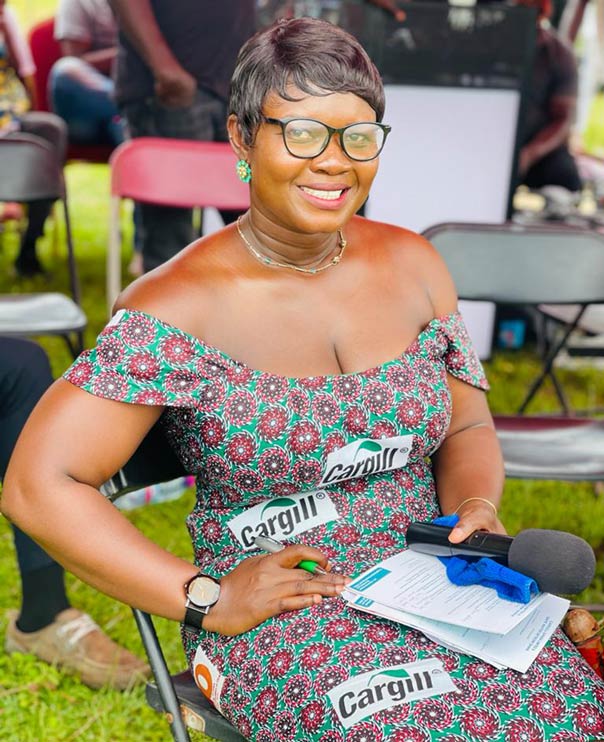 “I thought, ‘If I don’t move up, neither do the other women.’ I realized I had to face my fears to give other women room to, as well.”
“I thought, ‘If I don’t move up, neither do the other women.’ I realized I had to face my fears to give other women room to, as well.”
In Brazil, she helps combat anti-Black racism and support Black talent
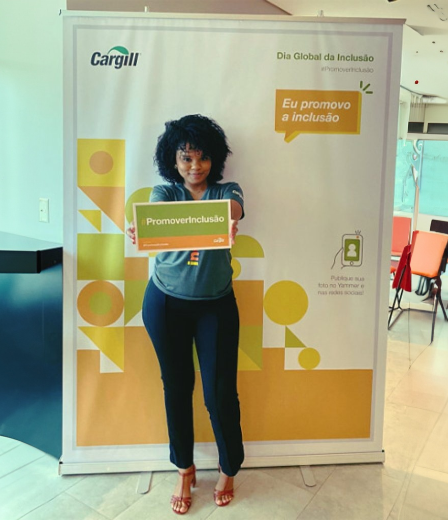 Jislaine Oliveira Da Silva champions inclusivity at Cargill in Brazil with her involvement in our Anti-Racism Project and the AfroCargill community.
For Jislaine Oliveira Da Silva, Cargill’s work to address anti-Black racism in Brazil and the U.S. is personal.
Jislaine Oliveira Da Silva champions inclusivity at Cargill in Brazil with her involvement in our Anti-Racism Project and the AfroCargill community.
For Jislaine Oliveira Da Silva, Cargill’s work to address anti-Black racism in Brazil and the U.S. is personal.
"I'm a black woman who has suffered racial prejudice in my life and I want my Black colleagues to have fewer and fewer similar experiences,” says Jislaine, an employee and labor relations specialist.
Jislaine co-leads the Anti-Racism Project, a dedicated effort to raise awareness of racial issues in Brazil. For Jislaine, the project turns Cargill’s commitment to diversity, equity and inclusion (DEI) into concrete, realistic solutions.
Take joining MOVER, a group of large companies operating in the South American country whose goal is to include and train 10,000 Black managers by 2030. This helps Cargill reach its goal of increasing the number of Afro-Brazilian team members, including in leadership roles.
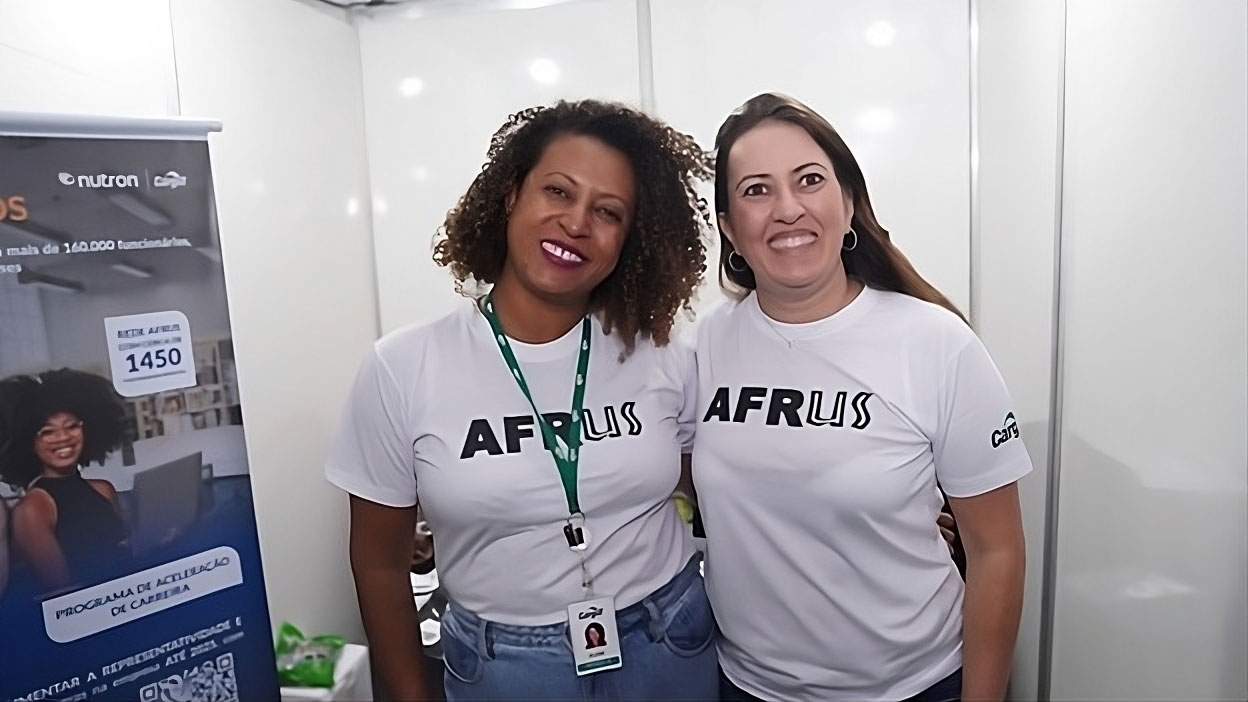 Two colleagues at Unicamp Black Network, an event held in Brazil to connect, inspire and develop Black talent at Cargill.
Two colleagues at Unicamp Black Network, an event held in Brazil to connect, inspire and develop Black talent at Cargill.
Jislaine also joined AfroCargill. Cargill’s Ebony Council in Brazil aims to foster an inclusive environment, supporting efforts in recruiting, developing and retaining Black talent while driving significant cultural change around anti-Black racism. One set of training sessions, for example, invites Black employees to share their experiences and start conversations.
Such community-building plays a critical role, Jislaine says. “We always work in partnership and that helps support each other. Allies have become increasingly active. Each person who has been or is part of AfroCargill has been fundamental to achieving our goals. There is still a lot of work to be done, but we are on the right track.”
More stories
‘Growing the future’: Working with Black farmers to advance equity
Through the Black Farmer Equity Initiative, Cargill is helping connect Black farmers in the U.S. with more equitable opportunities in agriculture.
Global Day of Inclusion: 4 stories from around Cargill
At Cargill, we reinforce our commitment to building a stronger, more diverse community. Here’s how 4 colleagues around the world do it.
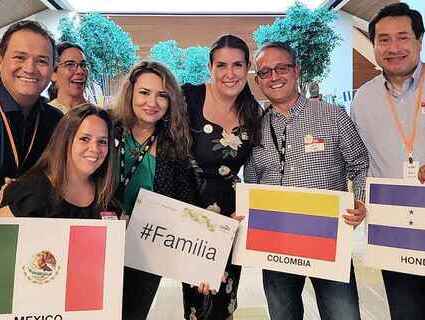
Hispanic Heritage Month
Hispanic Latino colleagues at Cargill are empowering each other through mentorship programs and a strong, active community.

